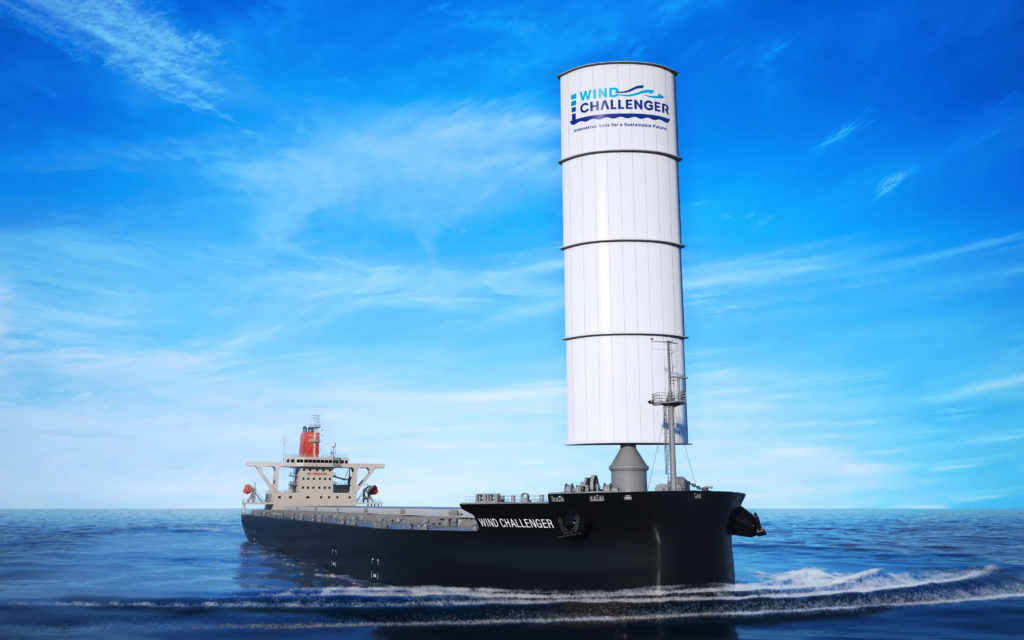United Kingdom/Japan – By incorporating wind power technology on its vessels, leading renewable energy company Drax Group and Japanese shipping firm MOL Drybulk are collaborating to lower the emissions and fuel costs related to shipping biomass.
In order to get Drax’s wood pellets to its customers in Japan, where the biomass is used to generate dependable, renewable energy that replaces fossil fuels, the companies intend to promote the development of wind-powered vessels. The first ship is anticipated to enter service as early as 2025 and will be equipped with MOL’s Wind Challenger hard sail technology.
The initiative is a part of Drax’s plans to use bioenergy with carbon capture and storage to further reduce supply chain emissions in order to meet its industry-leading goal of becoming a carbon negative company by 2030. (BECCS).
Using EFBC
The two businesses will investigate whether using first- and second-generation Environmentally Friendly Bulk Carriers (EFBC) to transport Drax’s biomass is feasible under the terms of the Memorandum of Understanding (MoU). The first EFBC will test the use of various technologies, such as rotor sails, and will use MOL’s automated telescopic hard sail technology, called Wind Challenger. The second EFBC seeks to use new vessel designs with multiple Wind Challenger sails, other low-carbon technologies under development, and alternative fuels like ammonia, liquefied natural gas, and synthetic fuels to at least halve emissions.
In addition to working with the shipyard where the vessel will be built and equipped with the hard sail technology, MOL Drybulk will be responsible for developing the technologies that will be used. Drax will collaborate on the operational feasibility studies with the ports and terminals in the supply chain. The Memorandum of Understanding with MOL Drybulk builds on Drax’s prior work with the Smart Green Shipping Alliance to examine the potential for installing cutting-edge sail technology on ships transporting biomass from the US to the UK.





